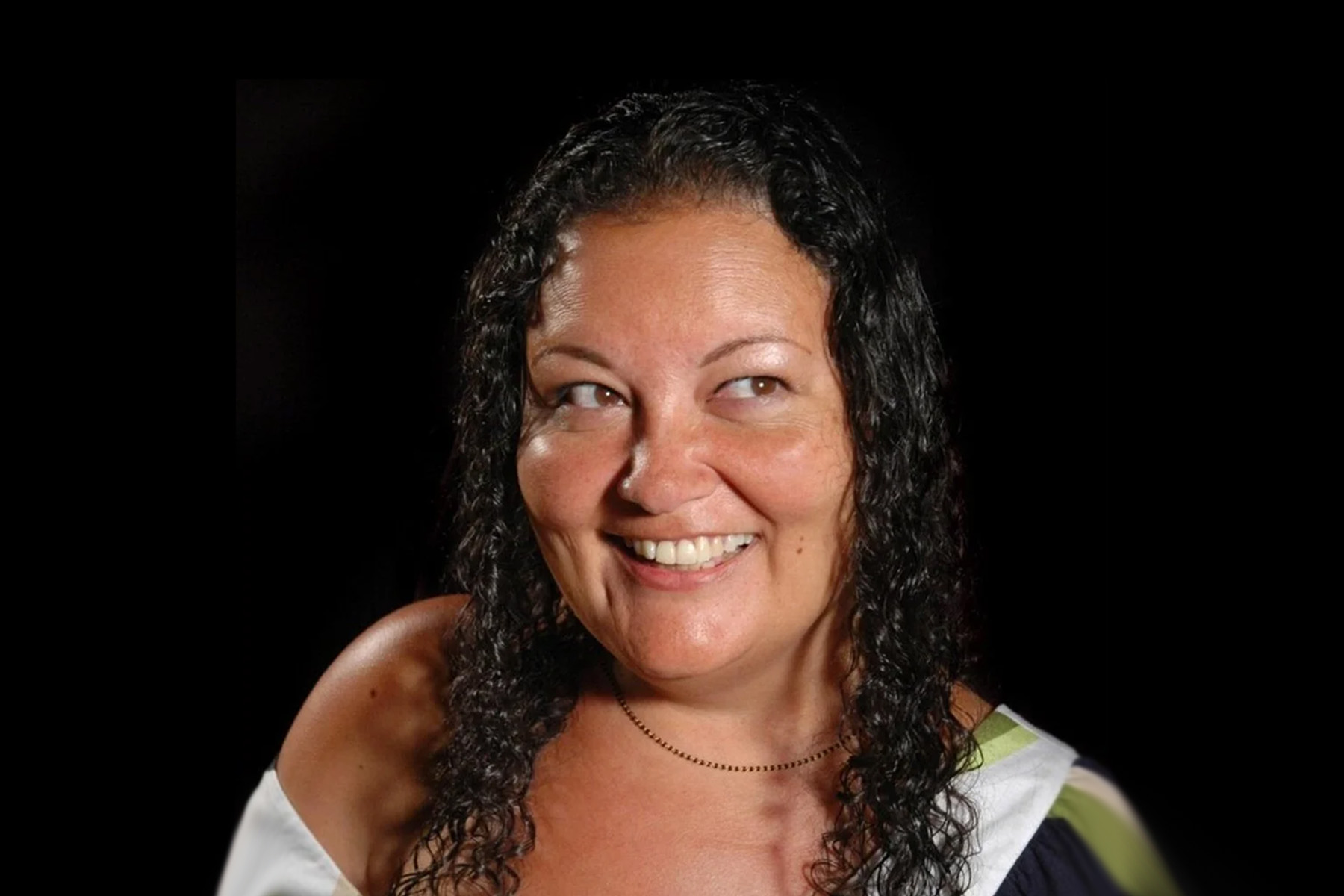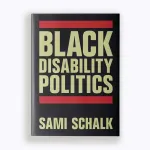Friends, family and colleagues gathered on Saturday to remember Patty Berne, a primary architect of the disability justice movement and co-founder of the performance group Sins Invalid. Berne died on May 29 in Berkeley. They were 58.
Over 250 people attended in person or participated in a livestream of Berne’s celebration of life at the East Bay Church of Religious Science in Oakland, California.
Disability justice was first developed in the early 2000s by Berne and other activists, including Mia Mingus and the late Stacey Park Milbern, who felt excluded by the mainstream disability rights movement as queer people and women of color. They felt frustrated by single-issue advocacy and decided to create something different.
“I think people are often more familiar with both understanding of a rights-based framework than a justice-based framework in general, regardless if it’s racial justice or reproductive justice,” Berne told The Disability Visibility Project in 2015. While acknowledging the importance of disability rights, the benefits the movement gave, to Berne and their collaborators, are precarious.
“Rights can be ‘granted’ and taken away. … Justice is about how we live and love and practice everyday interactions. It’s not something that can be taken away,” Berne said in the same interview.
The growth and development of disability justice was a lifelong project for Berne, and definitionally involved cross-movement work.
“In their final years, they were very much on the cutting edge of building a movement and building kind of power and capacity at the intersection of disability justice and climate justice. I think that work was incredibly essential for our collective human survival, not just for the survival and thriving of disabled communities,” said Mordecai Cohen Ettinger, who helped organize Berne’s celebration of life. In addition to working with Sins Invalid “since the beginning,” Ettinger was extremely close with Berne.
“We spoke of each other as soul siblings. I’ve been essentially adopted into the Berne family. As well as being collaborators and comrades, we are very much chosen siblings and chosen kin,” Ettinger told The 19th.
Patty Berne was born in San Francisco to Francois Maurice Berne and Sugako Berne. Their father was born in Haiti and their mother was born in Japan. Berne grew up in San Francisco with their parents and their sisters, Simone Billings, Chieko Tomasulo and Mary Bow.
At the celebration of life, Billings told mourners that Berne’s activist work began when they entered University of California at Berkeley at 16.
“At Berkeley, the seeds of Patty’s impressive impact on various social justice issues and causes more fully sprouted,” Billings said.
She recalled one protest, where protesters chained themselves to a fence. Berne had one of their comrades chain their wheelchair to the fence too.
“A police officer asked [Berne] whether she was passively resisting arrest, to which she replied: ‘Yes, thank you for asking.’ To which he responded: “You’re welcome. You’re under arrest!’
And so she was – Until a week or so later, when she discovered that charges against her had been dismissed because the courts in Berkeley at that time were not wheelchair-accessible,” Billings said.
Berne protested that too, and was eventually able to get charges dropped for all of the protesters.
“This is the person that her family has seen since she was young, not just in her adult life,” she said.
In 2005, Berne founded Sins Invalid, a performance group and artists’ incubator with Leroy Moore, another Bay Area disabled artist and activist involved in the formation of disability justice. Moore has since moved on to other projects, but Berne continued to work with Sins Invalid for the rest of their life.
Maria Palacios, whose stage name is the “Goddess on Wheels,” joined Sins Invalid in 2007. She is a performing artist, disability activist and longtime friend of Berne. She currently serves as the Spanish-language community organizer for Sins Invalid.
Palacios described her involvement in Sins Invalid as transformative.
“It was so revolutionary for me, to come into the space that I had never occupied before. It blew me away — disabled performers that get paid to do our art? Ableism is so brutal that even to this day, disabled people and disabled artists, disabled performers, we have to come in with a machete to eliminate ableism before we can even get to the door. Coming in to [Sins Invalid] was like being reborn,” Palacios told The 19th.
For Palacios, Sins Invalid is not only a gift to the disability community. It is a gift to the world.
“Sins Invalid reminds disabled people that we deserve to be here, that we are badasses, that we have so much to give, that we are not alone, that we shall survive together,” she said “It’s also a gift to the non-disabled world, to teach them that we are here with our arms open and our hearts also fully open and ready to welcome them when they join us, because we know they will. Sins Invalid is crip love, baby. Crip love.”
Some people within the disability community, like Palacios, reclaim the slur “crip” as a term of empowerment, similar to how some in the LGBTQ+ community use the term “queer.”
One of Berne’s final projects was the Crip Survival Network, a collaboration between over 20 organizations and Sins Invalid focused on helping disabled people survive natural disasters brought on by climate change and other catastrophes. Palacios and Berne started it together.
“It all started out of a conversation. We recognize not only that natural disasters are happening more and more, but also the different threats that we face because of ableism, politically, etc. Patty always envisioned disabled people surviving more than anything. She wanted all of us to survive, to have what we needed,” Palacios said.






